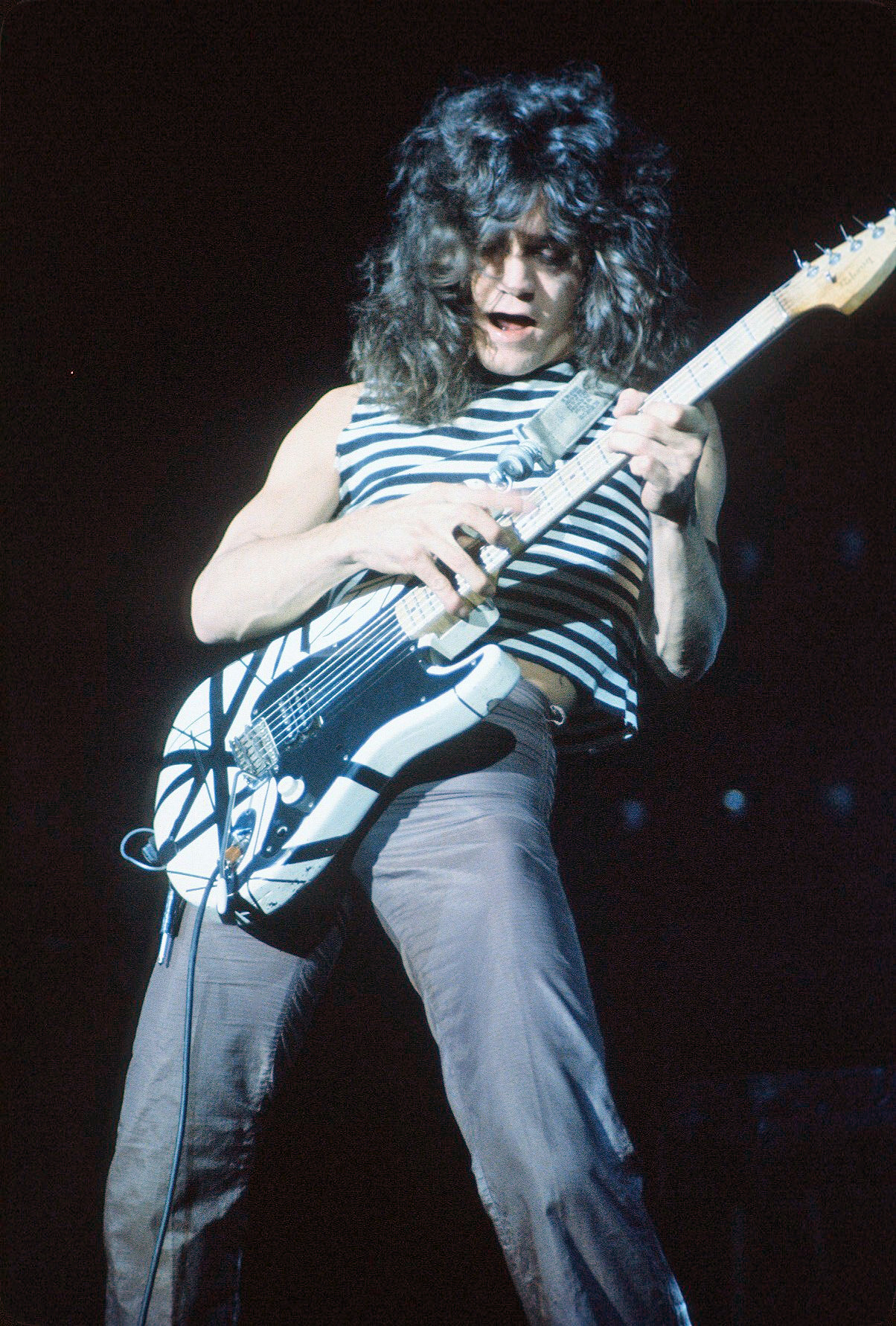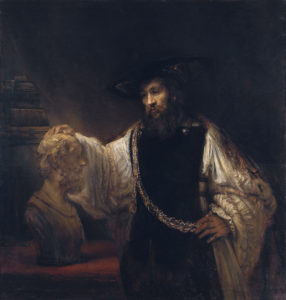During his lifetime, Dutch-born Edward Lodewijk Van Halen enjoyed the status of living legend. When he died earlier this month from throat cancer, Van Halen was instantly canonized. While his fans mourn and his friends remember, fellow guitar virtuosos acknowledge Van Halen as the greatest guitarist of his generation. Yet, the praise seems narrow in scope; it fails to capture the bigger picture: Eddie Van Halen was the most influential musician of the 20th century.
What made Eddie so singular, was not simply his guitar playing. Actually, in most metrics measuring guitar aptitude, Eddie had been surpassed by the mid-80s: Yngwie Malmsteen was more precise; Steve Vai was smoother; George Lynch performed better solos; but Eddie remained and remains unimpeachable, in part, because he was cooler than the rest.
Virtuosity alone cannot explain Eddie’s transcendent quality—his attitude and his worldview should be included as explanations. And his worldview is that of a European émigré.
When the Van Halen family fled the post-war Netherlands in 1962, they had nothing: no money, no jobs, no English language skills. Upon settling in Pasadena, California, Eddie and his brother, Alex, were outsiders—they were immigrants, after all—unlikely candidates to set the tone of American music for a generation.
The boys’ father, Jan, was a professional musician. He used his skills, playing music locally, to pay for food and housing for his family. And he used his background to indoctrinate his children with musical appreciation. In effect, music was functionally vital to the family’s existence, while simultaneously a passionate pursuit. The mixture of love and desperation proved a potent combination for unlocking musical talent in the Van Halen boys.
By the time the Van Halen family had become comfortable in America, Eddie was a guitar wizard. But perhaps more importantly, he had faced an immigrant’s adversity and emerged with the sense that life was going to be okay. He had emerged happy. Eddie’s happiness would become apparent in his artistic choices. As a songwriter, he refused to dwell on the bad, likely because he knew how good he had it. As a performer, Eddie played with a smile on his face. He strutted the stage with a winking swagger that became his infectious trademark.
When Van Halen records began to populate record stores and radio playlists, Eddie’s guitar playing made a social impact—no small feat for instrumental performance. With his tapping and dive-bombing, Eddie Van Halen reminded people to dream, to go big. Amidst an economic downturn, Eddie’s guitar playing reaffirmed the American dream—because of his rags to riches success, yes, but maybe more so because he reminded the public that, if someone can do that on the guitar, anything is possible.
Eddie’s guitar playing would not have meant much without the proper vehicle. And Eddie’s world-class songwriting ability provided that vehicle. Without the songs, the general public wouldn’t have cared much for a Dutch-kid playing super-charged blues guitar. Had Eddie been an average writer, or perhaps an indulgent guitarist, unwilling to get out of the way for the sake of the song, or had he infused his songs with a less enjoyable worldview, Eddie the guitarist would not have transcended. But that’s the unique thing about Eddie: he was a virtuoso guitarist who wrote incredible, straightforward, singable, happy pop songs that the world was ready for.
Releasing their first two albums in the 1970’s, Van Halen cut through the malaise of the Carter era. The energy and content of Van Halen’s songs conflicted with the dreary worldview promoted by mainstream popular culture. Against the gritty backdrops in film: The Deer Hunter, Taxi Driver; music: Billy Joel, Black Sabbath; and current events: the Iranian hostage crisis, the oil crisis—Van Halen was content to profess “I can’t wait to feel your love tonight!”
The sound, the smiles, the worldview, Van Halen was anomalous in 1978, but they had gravity. And that gravity pulled mainstream culture inward, helping to alter the tone of the dawning decade.
By the mid 1980s, Van Halen was no longer cutting against the grain. Rather, American popular culture had conformed to Van Halen. Much of the movies and music of the 80s followed the Van Halen blueprint: virtuoso skill, paired with a cheery disposition, all accessibly packaged. Young Americans were viewing the world through a Van Halen-lens. Van Halen standards were emulated across popular culture. From film and television: Top Gun, Baywatch, John Hughes to music: Bon Jovi and Whitesnake — they all emphasized top-end talent with a fun-loving attitude. It was the 80s, baby. And it was awesome.
But, adherence to the Van Halen blueprint sometimes went awry. With respect to guitar-playing for example, Van Halen set a new bar, for both technique and pizzazz. Young, aspiring guitarists in the post-Eruption world sometimes trended towards indulgence. Guitar players followed the Van Halen regiment, locking themselves in their rooms for hours and years, crafting their technique. While many emerged from their rooms with pyrotechnic guitar skills, few emerged with the tasteful songwriting discretion of Van Halen. The guitar scene became flooded with guys writing mediocre songs that were just Trojan Horses for guitar shredding. It was masturbatory and boring.
Perhaps more consequential, the care-free, fun, happy Van Halen worldview was also difficult to imitate. When imitated poorly, the Van Halen vibe could come across as shallow, trivial, and stupid. A backlash to the Van Halen-era technique, and the substance, was inevitable.
While Van Halen directly influenced 1980s popular culture, they indirectly inspired 1990s popular culture. The surge of Seattle based alternative music in the early to mid-1990s was very much a backlash to Van Halen. The pendulum had swung back the other way. The European immigrant who had inspired a generation of kids to maximize their musical talent, and to smile and wink simultaneously, had been replaced by suburban Americans who sucked at their instruments; guys who just couldn’t get over their parent’s divorce, or whatever other middle-class melodrama was plaguing them; guys who took themselves so seriously.
Long since the 90s alternative has faded from relevance, Van Halen persists—despite not having contributed to popular culture for the last 30 years. Van Halen didn’t need to pump out new songs to maintain relevance. His technical innovations and his influence on the course of popular music make him the most influential musician of the 20th century. He changed the way his instrument was played, like no one before or since. And most importantly, he wrote timeless songs. Dreams, Panama, Dance the Night Away, When It’s Love — songs that make people feel happy — like everything is going to be okay. He was an immigrant who lived the American dream, and he wrote songs that made you feel like you could, too.
Picture Credit: Wikimedia






Be First to Comment